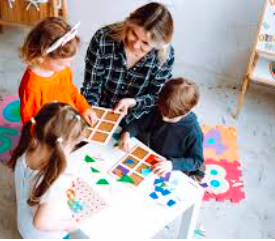In the early years of a child’s life, caregivers play a vital role in shaping their learning journey. Whether they are parents, teachers, or childcare providers, caregivers are the first guides children rely on to explore the world, build confidence, and form a foundation for future success.
Creating a Nurturing Environment
A warm and responsive caregiver helps children feel safe and valued. This emotional security allows young learners to take healthy risks, ask questions, and engage with new ideas. Simple actions like listening attentively, offering encouragement, and modeling respectful communication can have a lasting impact on a child’s social and emotional development.
Supporting Learning Through Play
Caregivers are instrumental in guiding play-based learning, which is central to early education. By introducing age-appropriate activities and observing a child’s interests, they can promote curiosity and creativity. Whether it’s stacking blocks, telling stories, or exploring nature, these interactions help children develop cognitive, motor, and language skills in meaningful ways.
Building Early Literacy and Language
Everyday conversations, reading aloud, and singing songs contribute significantly to a child’s language growth. Caregivers who speak clearly, ask open-ended questions, and encourage children to express their thoughts lay the groundwork for literacy and effective communication. These moments not only teach vocabulary but also foster critical thinking.
Encouraging Independence and Confidence
Helping children make choices, solve problems, and take part in daily routines nurtures independence. Caregivers who gently guide children through challenges—rather than solving everything for them—build resilience and confidence. These skills are essential as children transition into more structured school environments.
Modeling Positive Behavior
Children learn a great deal by watching those around them. Caregivers who demonstrate kindness, patience, and cooperation teach valuable life lessons. When adults model how to handle emotions, share with others, and show empathy, children are more likely to adopt these behaviors themselves.
Working in Partnership with Families
Effective early learning environments thrive when caregivers and families work together. Regular communication, mutual respect, and shared goals ensure that children receive consistent support at home and in care settings. When caregivers involve families in learning, it strengthens community ties and reinforces a child’s sense of belonging.
Conclusion
Caregivers are more than supervisors—they are educators, role models, and emotional anchors. Their daily interactions shape the way children see themselves and the world around them. By providing consistent care, encouragement, and opportunities to explore, caregivers lay the groundwork for lifelong learning and success.


